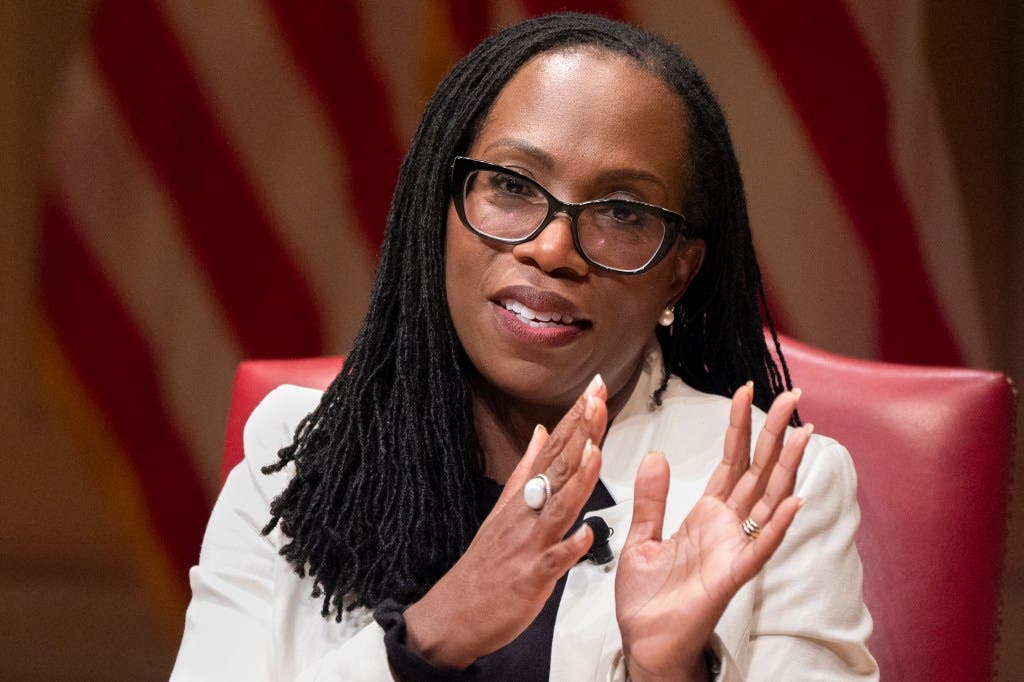In a heated exchange this Wednesday during the oral arguments for Louisiana v. Callais, Justice Ketanji Brown Jackson didn’t hold back when challenging the attorney defending Louisiana’s congressional map. As the lawyer claimed that the plaintiffs were simply after a second majority-Black district, Jackson interrupted him, stating plainly, “No, it’s not.” Her remarks underlined the significant issue of confirmed vote dilution and the responsibility to address racial discrimination under the law. This intense back-and-forth took place as the Supreme Court revisited this pivotal redistricting case, which has the potential to alter racial considerations in electoral district drawing across the country.
This controversial case concerns Louisiana’s congressional district map post-2020, which initially featured just one majority-Black district despite the state’s Black population being around a third. Following a victory for civil rights groups in earlier court decisions, the state was compelled to redraw the map to include a second majority-Black district. However, this new map faced opposition from white voters claiming it represented racial discrimination against them.

Why It Matters
The outcome of Louisiana v. Callais could potentially undermine Section 2 of the Voting Rights Act, which is designed to prevent racial vote dilution. Should the conservative majority lean towards Louisiana’s argument, it might severely limit the justification for race-conscious redistricting measures aimed at correcting historical injustices.
Voting rights advocates are expressing their concerns, warning that such a decision could diminish representation for minority groups in both Congress and state legislatures, particularly with the vital midterm elections approaching in 2026. This case also addresses the boundaries of the Equal Protection Clause as well as the 14th and 15th Amendments, which could have lasting impacts on future legal actions around the country.
What To Know
After the 2020 census, Louisiana created a congressional map that included only a single majority-Black district out of six, which was striking given that the state’s Black population makes up about 33%. In response, civil rights organizations sued, alleging that the map contravened Section 2 of the Voting Rights Act by unfairly weakening Black voting power. A federal court supported this claim, leading to the state legislature drawing a new map incorporating a second majority-Black district.
However, this new redrawn map met challenges from white voters who argued it discriminated against them by prioritizing race in any redistricting processes. A lower court sided with these plaintiffs, declaring that the revised map amounted to an unconstitutional racial arrangement. The Supreme Court permitted the map to remain in place for the upcoming 2024 elections but decided to reconsider the case.
During the second set of arguments, Jackson took issue with the defense’s portrayal of the situation. When an attorney asserted that the plaintiffs were simply pursuing a second majority-Black district, she interjected quite firmly: “No, it’s not.” She clarified that the heart of this case is not about entitlement to a specific outcome but tackling the issue of actual vote dilution. This need to remedy racial injustices was a theme reiterated by Justice Elena Kagan in the session.
The Supreme Court’s choice to reopen arguments—an uncommon procedural step—suggests that they might be gearing up to make a groundbreaking ruling. Legal experts point out that such moves often precede significant legal shifts, particularly in matters involving interpretations of the Constitution and civil rights.
A ruling against the revised congressional map could establish a precedent affecting race-conscious redistricting nationwide, with estimates suggesting that Republicans could potentially gain up to 19 secure seats in the House if similar maps are annulled in other states.
This scenario recalls past conflicts over interpretations of the Voting Rights Act, including the crucial 2013 Shelby County v. Holder ruling, which lessened the pre-clearance regulations. Advocates fear that Callais may contribute to further weakening protections for minority voters, particularly in Southern regions with challenging histories regarding racial discrimination.
What People Are Saying
Kentanji Brown Jackson addressing the issue of racial gerrymandering: “I don’t get why you’re saying that there’s no compelling state interest when it clearly is. You need to engage with the effects of racial discrimination using the tools available to you. Now, going too far with a remedy, that’s a separate question, right?”
Louisiana Solicitor General Benjamin Aguinaga: “Your Honor, we believe the initial step in all these cases, particularly in Robinson’s context, was that the plaintiffs insisted on another majority Black district.”
Jackson’s insightful rebuttal: “I actually thought they were pointing out that they’re not getting equal electoral chances because their votes fall short, which could very well be interpreted as a claim to a second majority Black district. The main issue remains: how do we correct the problem you’ve acknowledged exists? In various Section 2 lawsuits, the court finds no basis for a claim. But in this instance, the court recognized the validity of the issue at hand and then asked how we can right that wrong.”
What Happens Next
The Supreme Court is anticipated to reach a decision concerning Louisiana v. Callais later in this judicial term. If they rule in favor of Louisiana, we may see a significant restriction on how race can be utilized in redistricting, which could transform the voting rights landscape leading up to the 2026 midterm elections.
Update 10/15/25 2:38 p.m. ET: This article has been updated with the latest information.


















